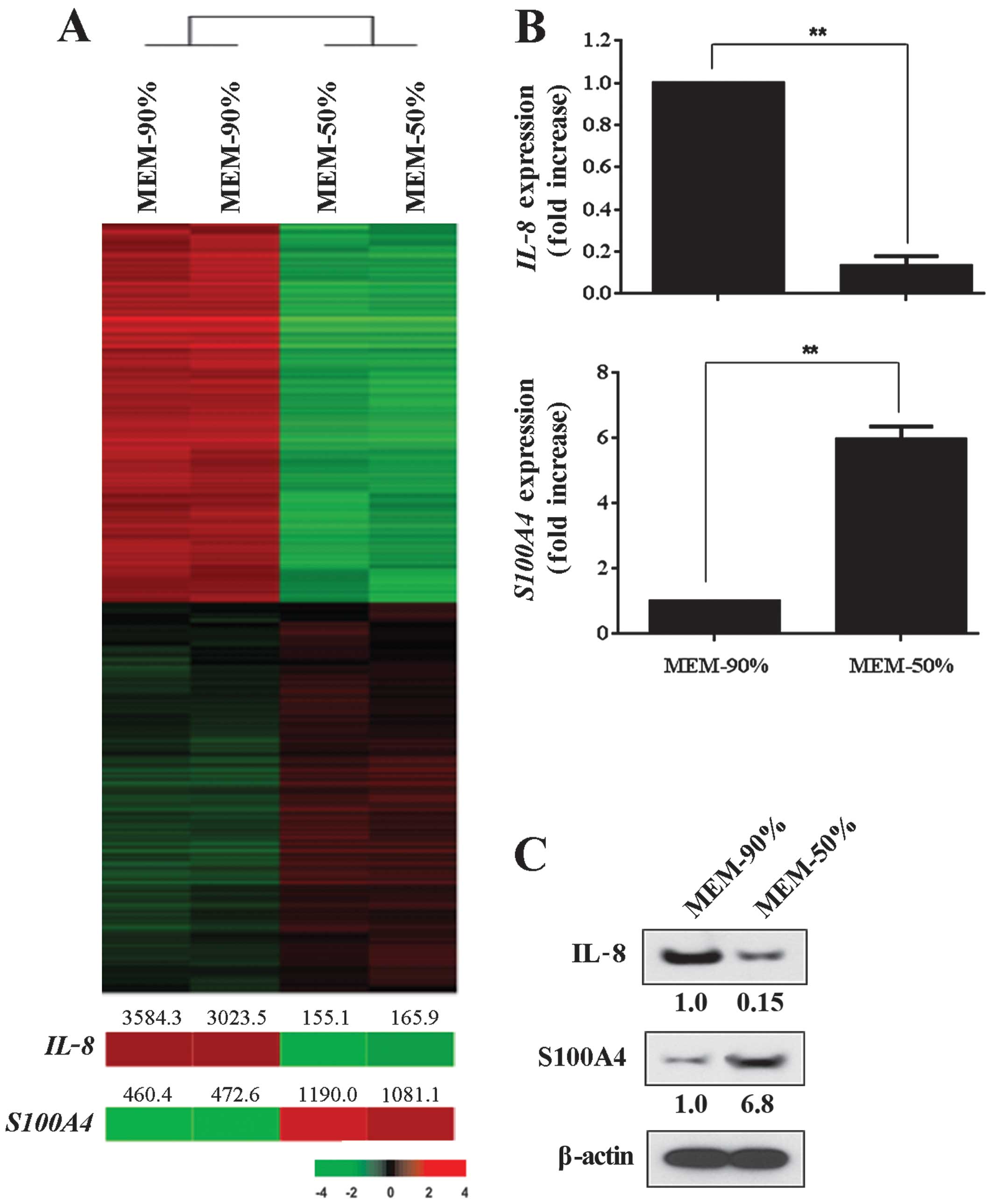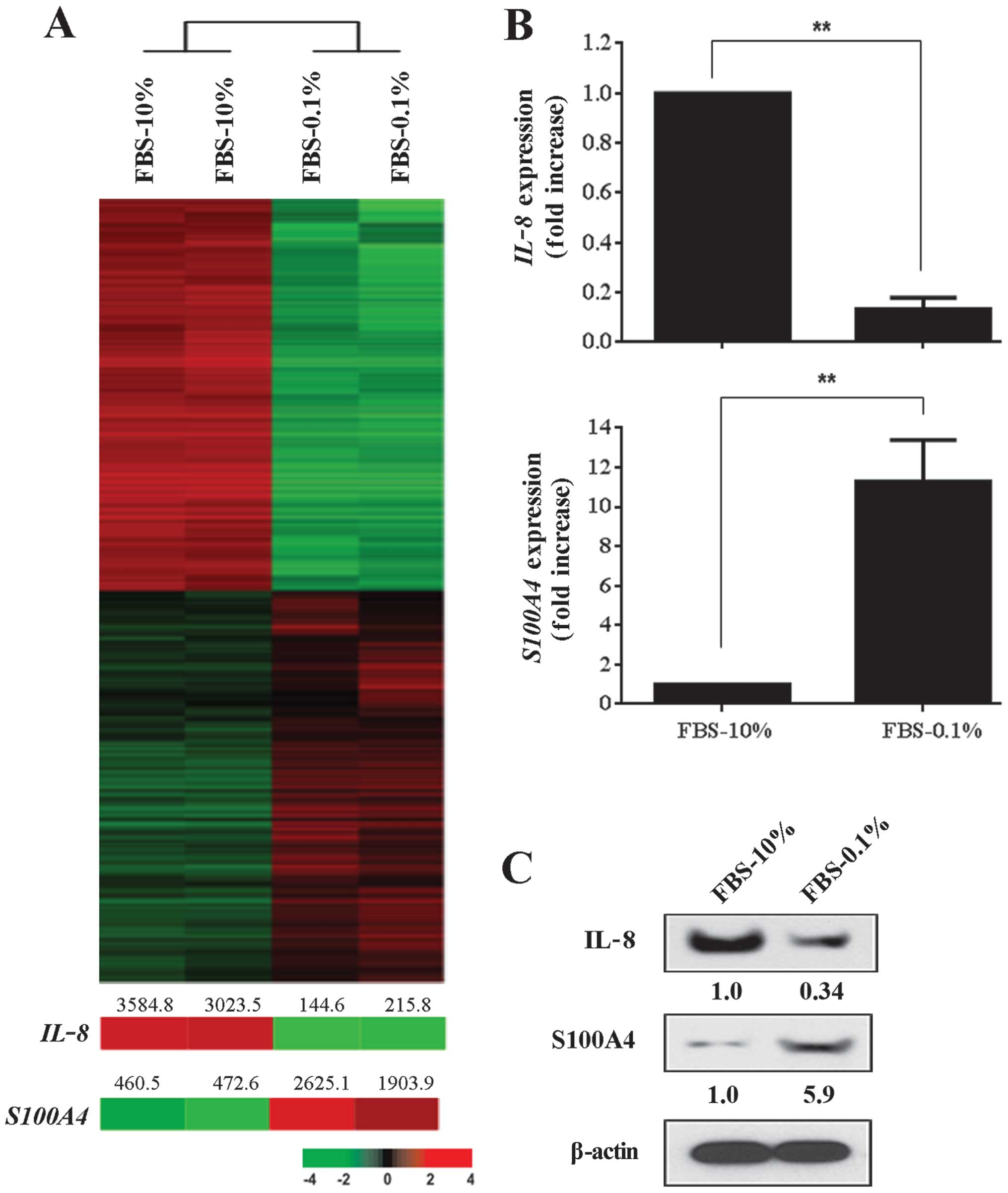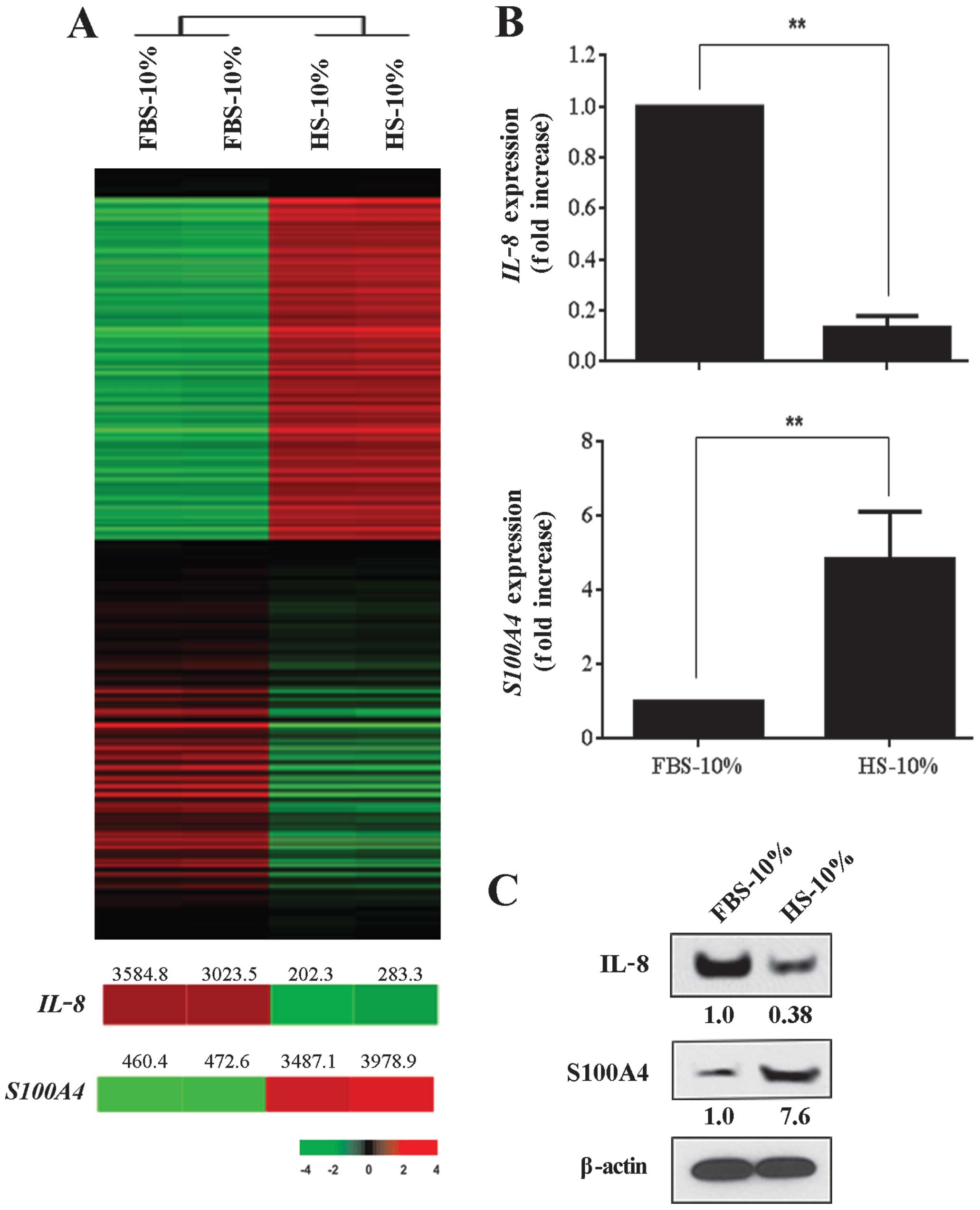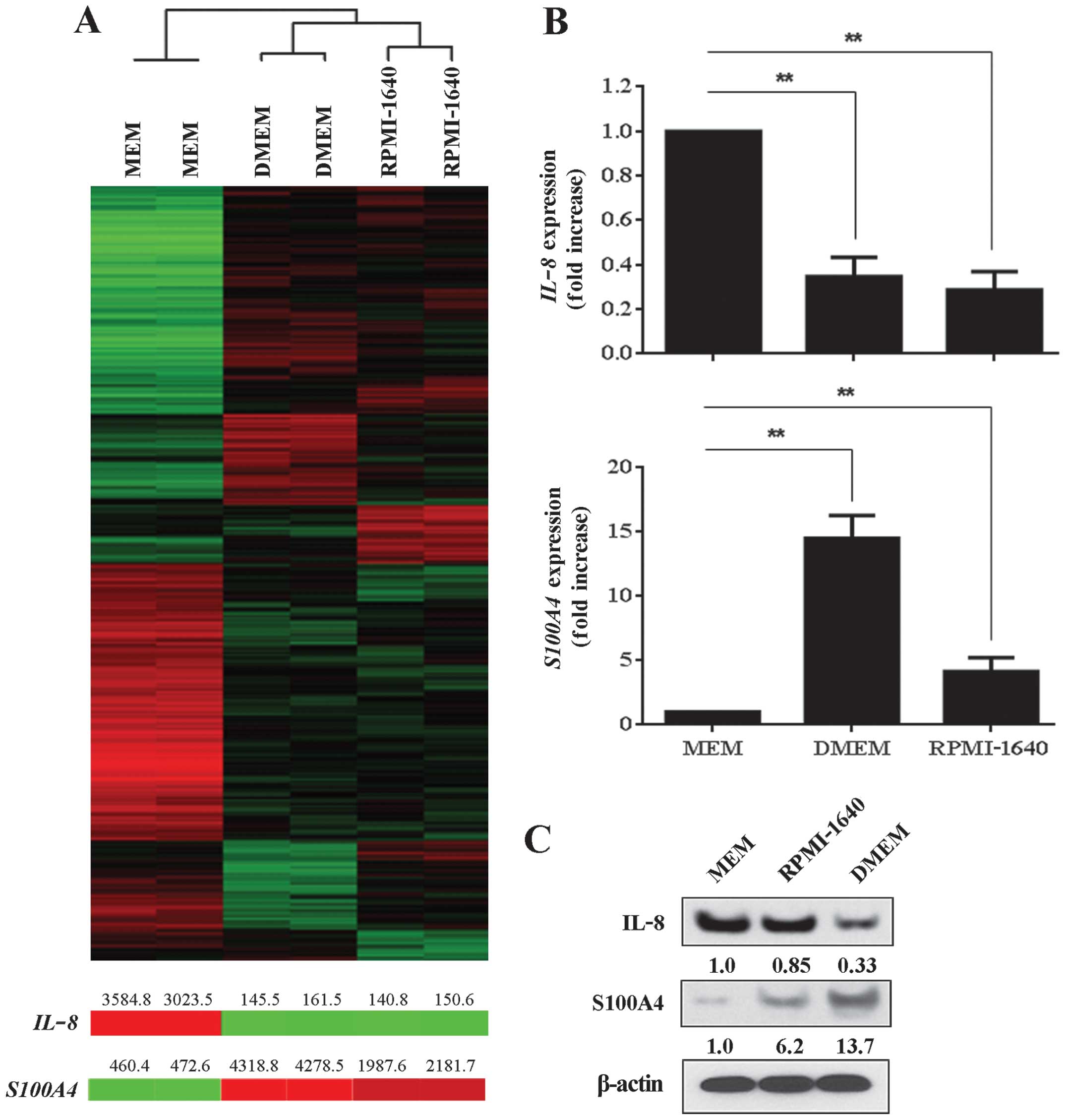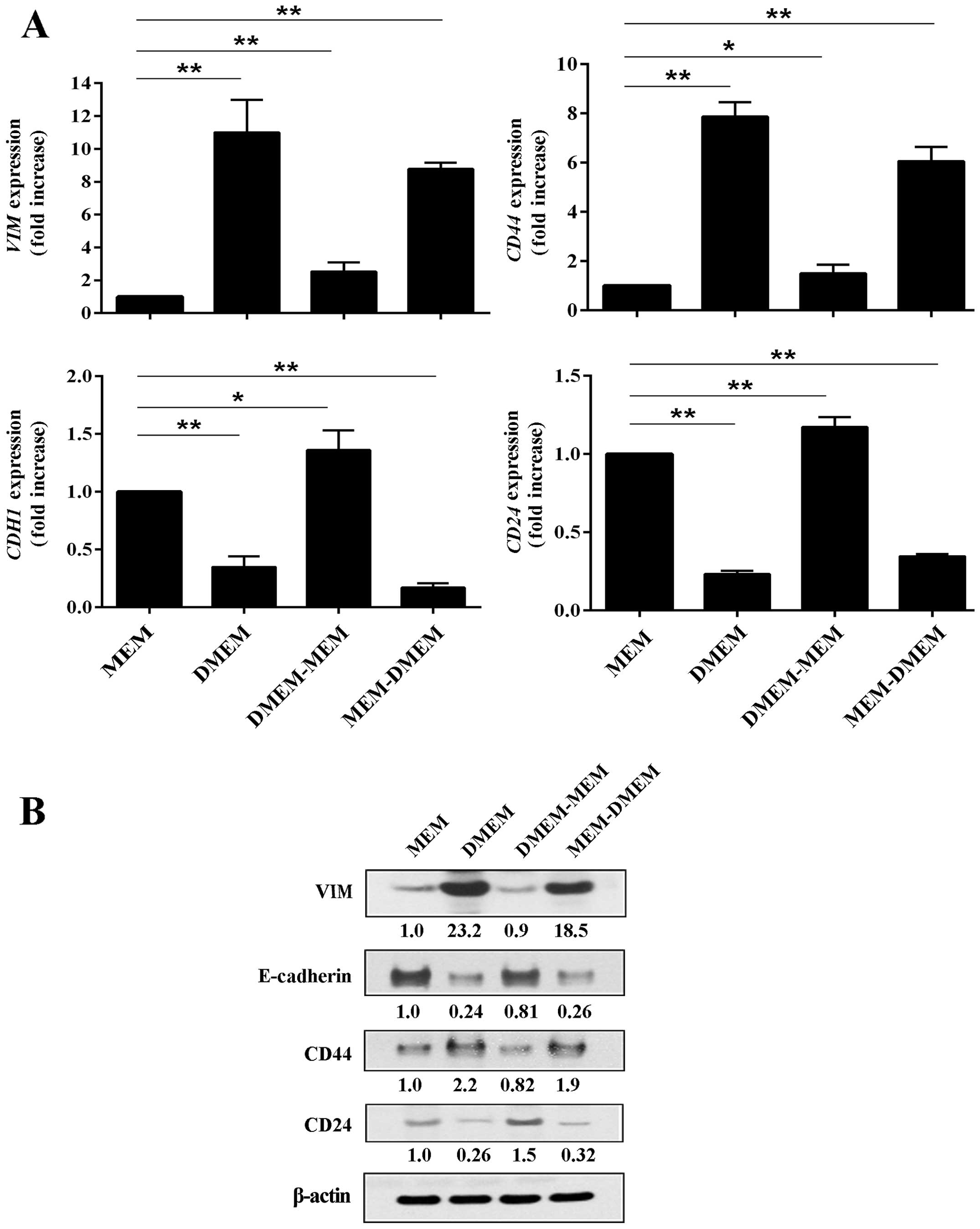|
1
|
Begley CG and Ellis LM: Drug development:
raise standards for preclinical cancer research. Nature.
483:531–533. 2012. View
Article : Google Scholar : PubMed/NCBI
|
|
2
|
Prinz F, Schlange T and Asadullah K:
Believe it or not: how much can we rely on published data on
potential drug targets? Nat Rev Drug Discov. 10:7122011. View Article : Google Scholar : PubMed/NCBI
|
|
3
|
Ioannidis JP: Why most published research
findings are false. PLoS Med. 2:e1242005. View Article : Google Scholar : PubMed/NCBI
|
|
4
|
Bissell M: Reproducibility: the risks of
the replication drive. Nature. 503:333–334. 2013. View Article : Google Scholar : PubMed/NCBI
|
|
5
|
Davies H, Bignell GR, Cox C, et al:
Mutations of the BRAF gene in human cancer. Nature. 417:949–954.
2002. View Article : Google Scholar : PubMed/NCBI
|
|
6
|
Druker BJ, Tamura S, Buchdunger E, et al:
Effects of a selective inhibitor of the Abl tyrosine kinase on the
growth of Bcr-Abl positive cells. Nat Med. 2:561–566. 1996.
View Article : Google Scholar : PubMed/NCBI
|
|
7
|
Engelman JA, Zejnullahu K, Mitsudomi T, et
al: MET amplification leads to gefitinib resistance in lung cancer
by activating ERBB3 signaling. Science. 316:1039–1043. 2007.
View Article : Google Scholar : PubMed/NCBI
|
|
8
|
Gazdar AF, Gao B and Minna JD: Lung cancer
cell lines: useless artifacts or invaluable tools for medical
science? Lung Cancer. 68:309–318. 2010. View Article : Google Scholar : PubMed/NCBI
|
|
9
|
Gazdar AF, Girard L, Lockwood WW, Lam WL
and Minna JD: Lung cancer cell lines as tools for biomedical
discovery and research. J Natl Cancer Inst. 102:1310–1321. 2010.
View Article : Google Scholar : PubMed/NCBI
|
|
10
|
Langley RR and Fidler IJ: The seed and
soil hypothesis revisited - the role of tumor-stroma interactions
in metastasis to different organs. Int J Cancer. 128:2527–2535.
2011. View Article : Google Scholar : PubMed/NCBI
|
|
11
|
Cascone T, Herynk MH, Xu L, et al:
Upregulated stromal EGFR and vascular remodeling in mouse xenograft
models of angiogenesis inhibitor-resistant human lung
adenocarcinoma. J Clin Invest. 121:1313–1328. 2011. View Article : Google Scholar : PubMed/NCBI
|
|
12
|
Kim SJ, Kim JS, Park ES, Lee JS, et al:
Astrocytes upregulate survival genes in tumor cells and induce
protection from chemotherapy. Neoplasia. 13:286–298.
2011.PubMed/NCBI
|
|
13
|
Simon R, Lam A, Li MC, Ngan M, Menenzes S
and Zhao Y: Analysis of gene expression data using BRB-ArrayTools.
Cancer Inform. 3:11–17. 2007.PubMed/NCBI
|
|
14
|
Livak KJ and Schmittgen TD: Analysis of
relative gene expression data using real-time quantitative PCR and
the 2(−Delta Delta C(T)) method. Methods. 25:402–408. 2001.
View Article : Google Scholar
|
|
15
|
Eisen MB, Spellman PT, Brown PO and
Botstein D: Cluster analysis and display of genome-wide expression
patterns. Proc Nat Acad Sci USA. 95:14863–14868. 1998. View Article : Google Scholar : PubMed/NCBI
|
|
16
|
Druker BJ and Lydon NB: Lessons learned
from the development of an abl tyrosine kinase inhibitor for
chronic myelogenous leukemia. J Clin Invest. 105:3–7. 2000.
View Article : Google Scholar : PubMed/NCBI
|
|
17
|
American Type Culture Collection Standards
Development Organization Workgroup ASN- 0002. Cell line
misidentification: the beginning of the end. Nat Rev Cancer.
10:441–448. 2010. View
Article : Google Scholar : PubMed/NCBI
|
|
18
|
Barallon R, Bauer SR, Butler J, et al:
Recommendation of short tandem repeat profiling for authenticating
human cell lines, stem cells, and tissues. In Vitro Cell Dev Biol
Anim. 46:727–732. 2010. View Article : Google Scholar : PubMed/NCBI
|
|
19
|
Thiery JP, Acloque H, Huang RY and Nieto
MA: Epithelial-mesenchymal transitions in development and disease.
Cell. 139:871–890. 2009. View Article : Google Scholar : PubMed/NCBI
|
|
20
|
Tam WL and Weinberg RA: The epigenetics of
epithelial-mesenchymal plasticity in cancer. Nat Med. 19:1438–1449.
2013. View
Article : Google Scholar : PubMed/NCBI
|
|
21
|
Scheel C and Weinberg RA: Cancer stem
cells and epithelial-mesenchymal transition: concepts and molecular
links. Semin Cancer Biol. 22:396–403. 2012. View Article : Google Scholar : PubMed/NCBI
|
|
22
|
Tang L, Li H, Gou R, Cheng G, Guo Y, Fang
Y and Chen F: Endothelin-1 mediated high glucose-induced
epithelial-mesenchymal transition in renal tubular cells. Diabetes
Res Clin Pract. 104:176–182. 2014. View Article : Google Scholar : PubMed/NCBI
|
|
23
|
Yu MA, Shin KS, Kim JH, et al: HGF and
BMP-7 ameliorate high glucose-induced epithelial-to-mesenchymal
transition of peritoneal mesothelium. J Am Soc Nephrol. 20:567–581.
2009. View Article : Google Scholar : PubMed/NCBI
|
|
24
|
Liu PP, Liao J, Tang ZJ, et al: Metabolic
regulation of cancer cell side population by glucose through
activation of the Akt pathway. Cell Death Differ. 21:124–135. 2014.
View Article : Google Scholar
|
|
25
|
Kim TH, Kim HI, Soung YH, Shaw LA and
Chung J: Integrin (alpha6beta4) signals through Src to increase
expression of S100A4, a metastasis-promoting factor: implications
for cancer cell invasion. Mol Cancer Res. 7:1605–1612. 2009.
View Article : Google Scholar : PubMed/NCBI
|
|
26
|
Hoffmann E, Dittrich-Breiholz O, Holtmann
H and Kracht M: Multiple control of interleukin-8 gene expression.
J Leukoc Biol. 72:847–855. 2002.PubMed/NCBI
|
|
27
|
Waugh DJ and Wilson C: The interleukin-8
pathway in cancer. Clin Cancer Res. 14:6735–6741. 2008. View Article : Google Scholar : PubMed/NCBI
|
|
28
|
Singh JK, Simões BM, Howell SJ, Farnie G
and Clarke RB: Recent advances reveal IL-8 signaling as a potential
key to targeting breast cancer stem cells. Breast Cancer Res.
15:2102013. View
Article : Google Scholar : PubMed/NCBI
|















